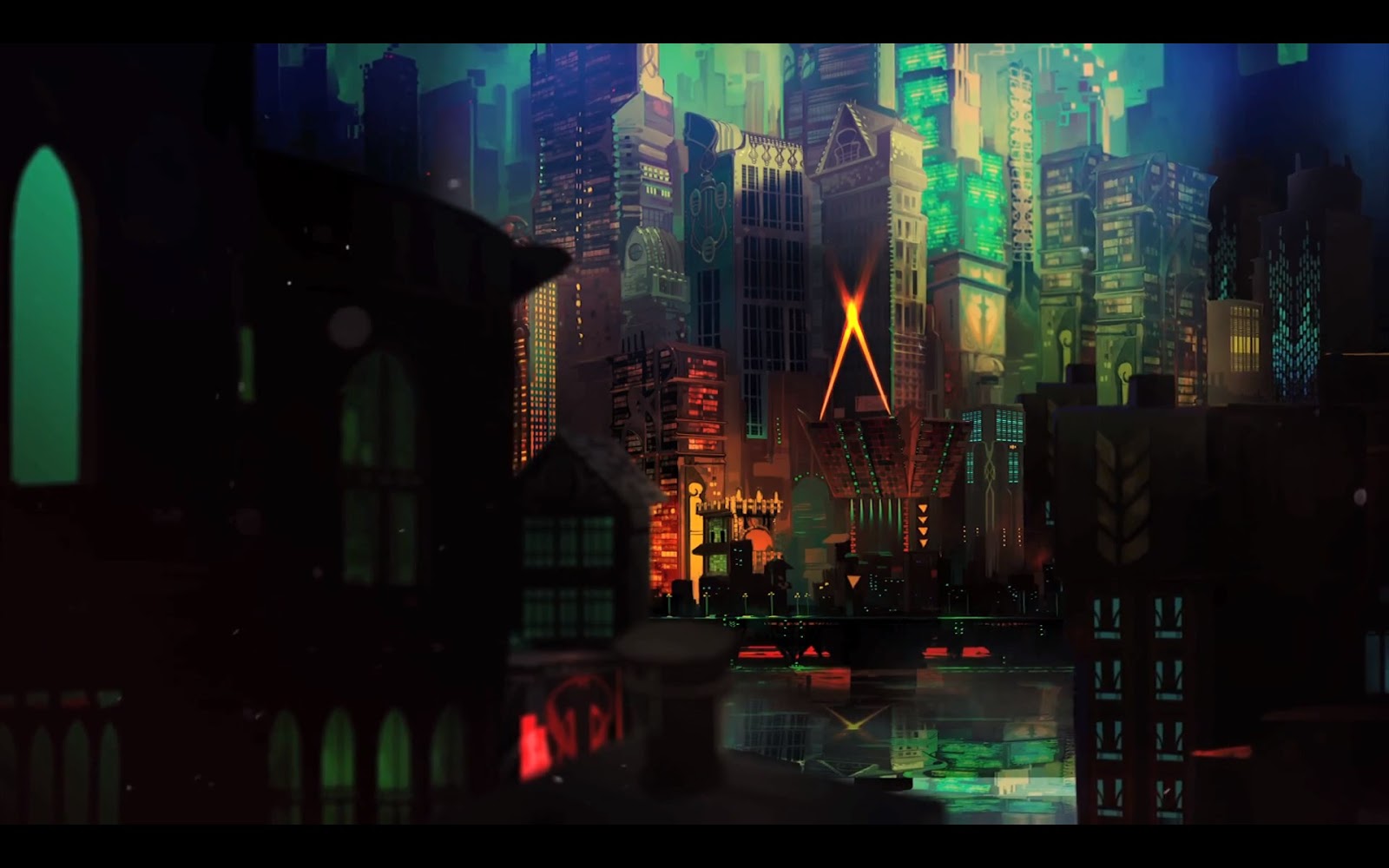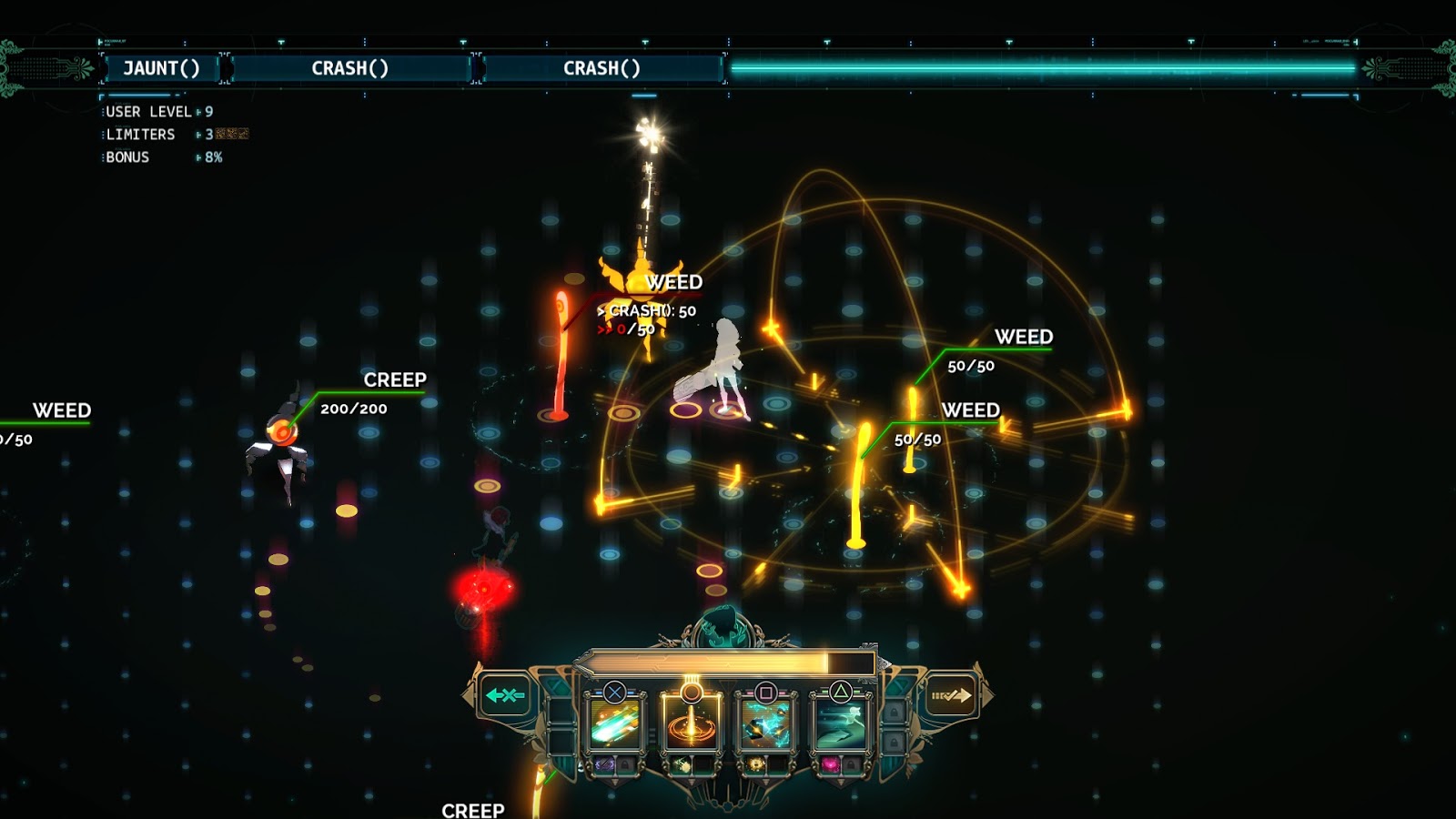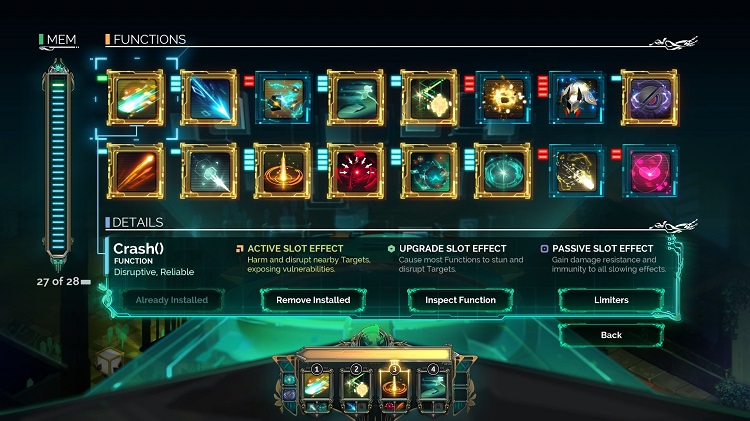Transistor
Article by: Danny Pratt
Hello everyone and welcome to this week’s Indie Innovation. This week I will be taking look at Transistor, an action-RPG set in a cyberpunk-fantasy world. With a focus on real time and turn based combat, beautiful artwork, and an outstanding soundtrack, Transistor seems to be the perfect sophomore outing for San Francisco-based Supergiant Games. Seamlessly blending all of these elements into a cohesive six hour journey, Transistor seems to cement its place among some of the best indie games available this decade.
Transistor immediately draws you with the hyper-stylized, color saturated world of Cloudbank. Almost like a playable graphic novel, the fluid animations and characters stand out against the static backdrops, adding depth to the existing isometric landscape. This occasionally ran the problem of obscuring your character during combat, however. It doesn’t happen frequently, but there were a few times while I was in the midst of battle and a building or other scenery object obscured my view of the combat. The attention to detail here reigns supreme, though. Sparks fly as you drag your sword, pulsing light emanates from the Transistor as it speaks, all of which help to give more life to an otherwise lifeless city. My concerns evolved over the course of the game, as I found myself worried that the next encounter will be the last time I got to see the beautifully drawn environment that Red finds herself in.

Aesthetics and voice-acting aside, the real draw to Transistor is the unique combat system. Mixing elements of real time and turn based combat, enemy encounters are issued as a puzzle of sorts. You are given the ability to fight enemies in real time, however the true beauty of Transistor shines through its use of the Turn() system. When you find the robotic enemies known as the Process, you can press the spacebar and instantly freeze the battlefield. You are then given the opportunity to plan out your moves with your four available attacks. Once you have planned your moves, you execute it in a flash of fury, watching as your enemies are unaware of the destruction brought down upon them. There’s a catch though: there’s a cool down period where you are powerless for a few seconds, bringing elements of chess into play. I could unleash all of my allotted action points on attacking an enemy, but when play resumes, I would most likely get pummeled by the enemies. This creates scenarios that force the player to think one step ahead, which helps to keep the combat exciting for hours.

The abilities that you unlock as you progress also add a level of customization that is deeply rewarding. Granted, the attacks – or functions as they are called in the game – can be a bit confusing to grasp in the beginning as they essentially have three roles. These abilities can either be active attacks, upgrades to existing attacks, or passive abilities. This paves the way for numerous loadouts with unexpected outcomes. For instance, I found that I could have an arrow-like projectile attack upgraded to split into three arrows and, upon impact, temporarily force the target into combat. These exciting combinations gave the combat a deep and robust flavor, making me eagerly anticipate my next battle.
Red is not the only one who upgrades as you progress through the story however. Process enemies continue to evolve and learn new strategies such as cloaking themselves or increasing movement speed. This saves Transistor from falling into a stale hole of repetition, keeping the few enemies in its roster fresh and exciting till the end.

Transistor is not a long game at all, and the way its world is dripping in neon colors and jazzy style leaves you wanting more, even as the credits roll. The story was actually over-dominated by its combat system at times, and that was surprising for me. I have always been a huge fan of the narrative of games and different stories they tell, and Transistor’s story is an intriguing one. The fact alone that I cared more about its fighting at times than its story goes to show how robust this game is. So, feel free to get invited in by Transistor’s mysterious storyline and characters, but in the end it’s the combat that will have you hitting the New Game Plus mode for a second helping.
